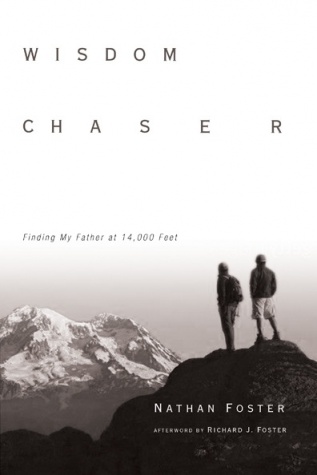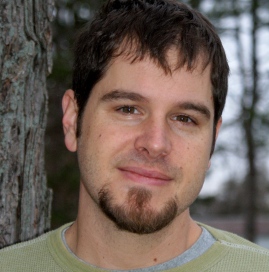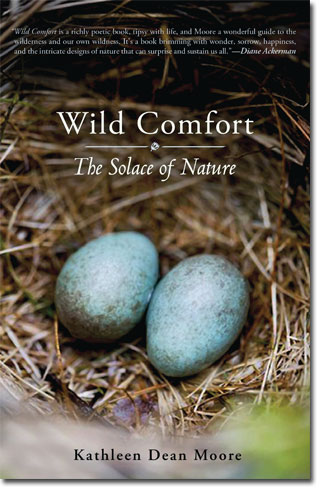No, silly, I wasn’t mountain climbing with Richard Foster, or anyone, for that matter. Beth and I did have a recent rendezvous with some long lost pals from Beth’s college days in the foothills of the Rockies. I even walked around a bit (hiking would be an overstatement.) We were at a wedding, so forgive me if I didn’t take a backpack. The weather and scenery and micro-brews and recovered friendship were stunning.
So it seemed right to be reading a book about the famed Colorado “fourteeners” along the way. To be reading about Mt. Quandary as one friend mentioned it, or the breath-taking Long’s Peak while literally gazing at its snow-capped jut into the sky, was really cool. As with so many topics, reading can enhance an experience (knowing a bit about Colorado climbs was helpful as I listened to a local climbing expert and reading about the various chains and canyons helped me appreciate them even as we drove around) and it serves as a great, vicarious substitute. We can “do” and “visit” so many things and places in the pages of a book that I can hardly imagine why more people don’t read widely. What fun! What learning!
 The book I carried is about climbing with famous mystic and Christian author, Richard Foster. It is called Wisdom Chaser: Finding My Father at 14,000 Feet (IVP; $16.00) and is written by his son, Nathan. It has a very interesting thesis, and it is a story that is nicely told. It is on the fabulous “likewise” imprint of InterVarsity Press, so has an honest, contemporary feel.
The book I carried is about climbing with famous mystic and Christian author, Richard Foster. It is called Wisdom Chaser: Finding My Father at 14,000 Feet (IVP; $16.00) and is written by his son, Nathan. It has a very interesting thesis, and it is a story that is nicely told. It is on the fabulous “likewise” imprint of InterVarsity Press, so has an honest, contemporary feel.
Here’s the brief version: Richard Foster, as most BookNotes readers will know, is a studious and quiet author who has brought the deep mystic tradition of the ecumenical church to evangelicals (and others, too.) His best-selling books from the 1970s and 80s, Celebration of Discipline or Prayer: Finding the Heart’s True Home or the one against speed, greed, and materialism, (Freedom of Simplicity) are must-reads. I think Foster is the only living author in the top ten of the Christianity Today list of top 100 Christian books of all time.
Sadly, Nate was a somewhat quirky kid who became a truly troubled youth, and it seems that Foster in his monk-like practice, and his seriously introverted job (writing about the inner journey) and his (often difficult for him) rise to fame and subsequent world-wide travels, simply didn’t relate well—hardly at all, it seems—to his boy. As Nate remained unaware and, then, increasingly hostile to his father’s work, he fell into aloofness, rebellion, addictions, self-injury, and hostility to organized religion. He doesn’t dwell too much on his descent into such pain, but the few scenes he describes are shocking. How could a member of the household of a solid, Godly author become so unglued?
In his young adulthood, Nate approached his father and basically said something like this: ” I don’t know you and you don’t know me and, despite my rage and dysfunction, we ought to get to know each other. Let’s climb a bunch of fourteeners and see what happens.”
As the back jacket copy puts it, “It began with a simple question…and for Nathan and Richard that simple question changed everything.”
Surprisingly, to Nate, and to some readers, too, I’d bet, 60-something father Foster says yes. Climb by climb, Wisdom Chaser unfolds the story of the reconciliation of father and son, describing Nate’s own journey–with frank language, telling of huge frustrations, painful episodes, and his deep questions in his “lovers quarrel” with the church. As he matures and grows (and comes to understand and appreciate his famous Quaker dad) he tells of his own young, struggling marriage, his entry into parenting an infant, finishing a college degree, and seeking out his own vocation, first as a crisis counselor and leader of an Outward Bound-type of program for very troubled youth, and, eventually, becoming a college teacher. He continued to climb, or hike, with his dad (and their faithful companion, a dog named Ziggy) as Nate’s recovery blossomed and their relationship saw considerable healing.
I loved this book, in part due to its simple and clear prose, and its fairly obvious themes. It’s very good stuff, traversing some serious emotional and spiritual terrain, but it is a very quick read. Famous and famously spiritual dad fails to connect with his son, son rejects traditional faith and dives into self-abuse and addictions, they re-connect in some trying and dramatic episodes of wilderness experiences.
Almost anybody who is a Foster fan will enjoy this, as you learn a bit about his life, his family, and his approach to these daunting tasks—the climbing and the relating. Those of us who have met and been ministered to by Richard know of his humor and his nearly casual way of approaching extraordinary spiritual experiences (but we learn here how we learned some of these gifts.) He and Nate are so different on this that it produces some conflicted (and, at times, hilarious) situations; from packing to pacing, Richard is slow, methodical, and gentle. His son is, well, exhuberant and wild. What a duo!
I can think of several sorts of readers who will enjoy this.
I think almost anyone who loves outdoor education, wilderness expeditions, or even more casual day hikes will love this. There is much to learn about experiencing the harsh terrain and dangerous weather and “going with the flow”, resisting presumptions about “conquering” nature and learning to respect nature’s wild ways. Nathan Foster’s writing style is not richly literate like Annie Dillard or Terry Tempest Williams, Brenda Peterson or Aldo Leopald. He’s not writing mostly about the aesthetics of the wild. (Although there are beautiful sentences here, and Richard’s slower pace allows Nate to see and be attentive to striking little flowers and lovely colors of rocks as the slant of sun changes, or as ice forms in lovely detail. The writing about an encounter with wild lightening was itself electric, and the coming to grips with certain “failures” during climbs was very moving.) So it isn’t about nature, per se. Still, the dramatic center and arche of the book—Nate’s recovery and the healing the wounds of his boyhood—is set in the great outdoors. It is not a book of pure “nature writing” but it is about mountain climbing.
casual day hikes will love this. There is much to learn about experiencing the harsh terrain and dangerous weather and “going with the flow”, resisting presumptions about “conquering” nature and learning to respect nature’s wild ways. Nathan Foster’s writing style is not richly literate like Annie Dillard or Terry Tempest Williams, Brenda Peterson or Aldo Leopald. He’s not writing mostly about the aesthetics of the wild. (Although there are beautiful sentences here, and Richard’s slower pace allows Nate to see and be attentive to striking little flowers and lovely colors of rocks as the slant of sun changes, or as ice forms in lovely detail. The writing about an encounter with wild lightening was itself electric, and the coming to grips with certain “failures” during climbs was very moving.) So it isn’t about nature, per se. Still, the dramatic center and arche of the book—Nate’s recovery and the healing the wounds of his boyhood—is set in the great outdoors. It is not a book of pure “nature writing” but it is about mountain climbing.
Further, I think anyone interested in psychology, AA stories, recovery, discovering one’s self, inner healing from deep hurts, learning to find a radical Christian faith community that is authentic and hopeful, relevant and not about marketing or glitz, but about Christ-like relationships, will find this immensely useful, too. It isn’t a guide book to recovery or how to be honest about one’s pain within the religious community, but it is important to hear these kinds of stories of brokenness and restoration, fears, foibles and the search for reconciliation.
Whether or not the story is about a famous (distant) dad and his hurting son, and whether or not the story is set in the spectacular drama of Western wilderness sojourns, this messed up fella finds God’s great grace to be real and m
akes commitments to being an agent of Christ’s reign of shalom on Earth. He is a poster boy for Nouwen’s nice phrase, “wounded healer.” I suppose it is fair to say that, at the end, besides the tender parent/child stuff, and the thrilling accounts of mountaineering, this is a testimonial book, a memoir of what God can do for needy sinners, through ordinary stuff—talking, hiking, paying attention,being faithful in relationships, surrender. It is a book about deepening discipleship, about being serious as followers of Christ. What a wonder that an adult child and an older parent can become friends and partners in the journey of grace and write about it with such candor.
Here is a link to Richard Foster’s website that has some great youtube videos of the two of them talking about their quest, and the book. Enjoy.
***
 Other books come to mind on this topic, especially about how being in the outdoors can be revelatory. I’ve written previous entries about great nature writing, about memoirs that illustrate the beauty of creation. One of my favorite writers is Kathleen Dean Moore, an exceptionally talented writer, a trained naturalist and philosopher, who has an ability to help us see by telling of what she sees. She has given us a lovely, lovely gift in a recent book entitled Wild Comfort: The Solace of Nature (Trumpeter; $15.95.) The always impressive Diane Ackerman says it is “a richly poetic book, brimming with wonder, sorrow, happiness, and the intricate designs of nature that can surprise and sustain us all.”
Other books come to mind on this topic, especially about how being in the outdoors can be revelatory. I’ve written previous entries about great nature writing, about memoirs that illustrate the beauty of creation. One of my favorite writers is Kathleen Dean Moore, an exceptionally talented writer, a trained naturalist and philosopher, who has an ability to help us see by telling of what she sees. She has given us a lovely, lovely gift in a recent book entitled Wild Comfort: The Solace of Nature (Trumpeter; $15.95.) The always impressive Diane Ackerman says it is “a richly poetic book, brimming with wonder, sorrow, happiness, and the intricate designs of nature that can surprise and sustain us all.”
Most who know this genre respect the prolific Scott Russell Sanders (do you know his splendid A Private History of Awe, with that great blurb in the form of a letter from his friend Wendell Berry? Sweet!) Sanders says of Moore’s Wild Comfort,
…in spite of grieving over the death of friends, the extinction of species, and
the tattering of Earth’s web, she finds comfort in natural and human creations,
in symphonies and snakes, in science and stars, in the beauty constantly
upwelling from the mystery we call life. This book itself is such a consoling
creation, a cause for gratitude and joy.
Wisdom Chaser is simply written, very interesting, and clearly helpful—he tells of lessons learned along the way, insights gleaned from the talks with his father, stuff he learned from creation and stuff he learned in his own journey towards healing and wholeness. Even if you’ve never been to Colorado, this is a book we highly recommend. As Eugene Peterson (perhaps only half-jokingly) writes, “Wisdom Chaser is as poignant and winsome as successive mountains deepen for each, the son and the father, what it means to be a son, to be a father. Add mountain climbing to your list of spiritual disciplines.”
And Wild Comfort, again, is great for anyone who loves good nature writing, beautiful and luminous words about the glories of seeing stuff. Whether one is in grief or not, don’t we all need comfort and care? Shouldn’t we be glad for authors who model for us how to be attentive, and find solace in the commonplace? Who can with such elegance point things out along the way? Kathleen Dean Moore has much to teach us, and teaches in such a gorgeous and stimulating way. Thank God for good writers who share their wild experiences with us. Especially when the wildness is quiet, gentle, healing and hopeful.
“fourteener” special
$14.00
either book
ORDER HERE
(takes you to our order form page which explains shipping and billing options)
Hearts & Minds 234 East Main Street Dallastown, PA 17313 717.246.3333

So glad for your review of Wild Comfort– you gave me Holdfast a few years back, and it’s on my short list for next book to read. The Foster book sounds intriguing also.
I set foot on the top of six fourteeners– which sounds impressive but four of the peaks are quite close together, with a road that gets you most of the way to the top. Decades ago. I’m glad to hear about the Foster book– again, eager to read.
Someone wondered about that “top ten” of the “top 100” list compiled a few years ago by C.T. writers.
I think you can find it here:
http://www.christianitytoday.com/ct/2000/april24/5.92.html
Agree or not, it is quite a listing, eh?
I just finished reading ‘Wisdom Chaser,’ and I really enjoyed it. It was an honest, reflective look at the process of spiritual growth. I appreciated Foster’s openness in discussing his own shortcomings, his addictions, and his process of recovery. For those of us who have struggled to live with addictions or spiritual malaise, his honesty is a refreshing testimony to the power of the Spirit. As a friend often says, “I always trust the advice of someone who’s had a major break-down.” 😉
Thanks, Byron, for the excellent review of this great book. I hope lots of people read it and are set free to pursue growth and a more measured pace in life.
Wisdom Chaser sounds like a great book, Byron. Thanks!